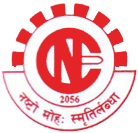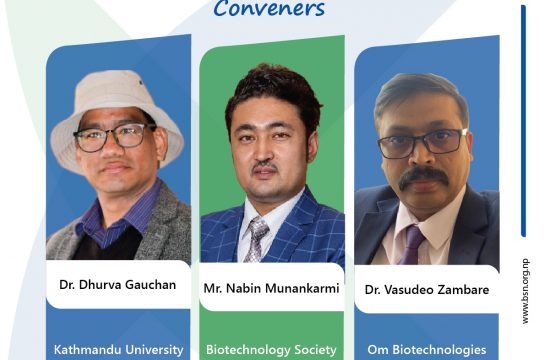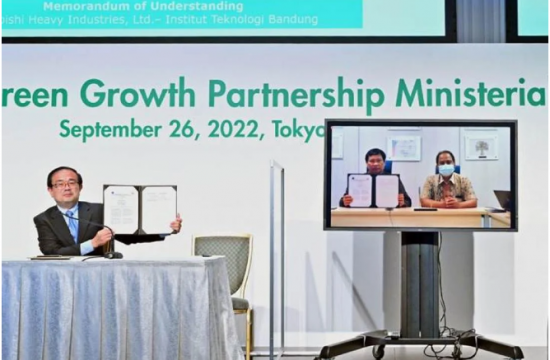Nepal took further strides in building the strength of its engineering sector this week when proposals for a “Professional Engineer” advanced qualification were opened to expert review.
 Kathmandu– Nepal Engineering Council (NEC) has organized a workshop, for bringing together leading practitioners from across the engineering sector to review and guide a strategy for the introduction of the new professional title on 4th December in Kathmandu.
Kathmandu– Nepal Engineering Council (NEC) has organized a workshop, for bringing together leading practitioners from across the engineering sector to review and guide a strategy for the introduction of the new professional title on 4th December in Kathmandu.
The workshop was organised with support from the Rural Access Programme (RAP3), funded by the UK’s Department for International Development (DFID). The workshop began with opening remarks from Er. Tulsi Sitaula, former Secretary of the Ministry of Physical Infrastructure and Transport, Er. Dhruba Thapa, President of the Nepal Engineers’ Association, Professor Jibraj Pokhrel, Vice-Chancellor of the Nepal Academy of Science and Technology, and Dr. Gail Marzetti, Head of DFID Nepal.
Following the earthquakes this year thousands of volunteer engineers mobilised to support their communities. Engineers will play a key role in the reconstruction efforts and in improving resilience against future natural disasters. The importance of the Professional Engineer qualification is more pressing today than ever before.
Conferred by the Nepal Engineering Council, the Professional Engineer title will only be awarded to qualified engineers who have attained specific milestones in academic excellence and professional experience. Professor Jibraj Pokhrel, Vice-Chancellor of Nepal Academy of Science and Technology, highlighted during his opening remarks that the engineering sector in Nepal has a very high number of engineers graduating each year, but often there are issues in terms of quality of engineering service provided. He hoped that the introduction of the Professional Engineer title “will hammer out the qualitative issues in the engineering sector”.
Intended for launch in early 2016, the new qualification is based on existing international models, in particular those of the Institution of Civil Engineers in the UK and the International Engineering Alliance, and will enable Nepali engineers to easily demonstrate that they have achieved the same level of professional competence as international colleagues from countries such as the UK, Ireland, New Zealand, Sri Lanka, and India amongst others.
[pullquote]The focus of the Professional Engineer title is on structured professional experience – providing engineers with the opportunity to develop their professional abilities through their work with the support of experienced mentors and supervisors. [/pullquote]
Dr. Gail Marzetti, Head of DFID Nepal, praised the initiative as it “will ensure that Nepali engineers will be able to demonstrate that they have achieved the same level of competence as their international colleagues and the long term benefits will be enormous”. She also spoke about her hopes for strong engagement from the Government of Nepal, employers, and other stakeholders to support the Nepal Engineering Council’s efforts to introduce the Professional Engineer title. Er. Tulsi Sitaula, former Secretary of the Ministry of Physical Infrastructure and Transport, spoke on behalf of employers and he said that “now is the time to introduce the Professional Engineer title as Nepal is currently lagging behind on this, by comparison to many other countries in the region”.
The focus of the Professional Engineer title is on structured professional experience – providing engineers with the opportunity to develop their professional abilities through their work with the support of experienced mentors and supervisors. The workshop included detailed discussion on a wide range of topics, led by Professor Dr. Deepak Bhattarai, with the participants divided between 14 groups, each group addressing a different topic. Er. Satya Narayan Shah, Chairman of the Nepal Engineering Council, was extremely appreciative of the critical debate during the workshop as it was “hugely beneficial in moving toward the realisation of this title, which is a vital step in building the strength of Nepal’s engineering sector”.
NOTES: The Nepal Engineering Council (NEC) is the regulatory body for the engineering profession in Nepal, as per the Nepal Engineering Council Act 1999. Under this act the NEC may award the title of Professional Engineer to engineers who have achieved prescribed standards.
The award of the title of Professional Engineer enables an engineer to use the title PE (Nepal), indicating that the engineer practices to high ethical standards and is applying their engineering knowledge to provide solutions to complex problems.
A similar title is awarded in the USA and Canada, in Japan the title of Registered Engineer (RE) is awarded, in Australia and New Zealand the title awarded is Chartered Professional Engineer (CPEng), in the UK and Ireland the title Chartered Engineer (CEng) is awarded.
Securing the title of Professional Engineer provides a badge of credibility to an engineer and is a clear demonstration of their professional ability. Engineers should take pride in their skills and abilities and the title of Professional Engineer can be seen as a formalisation of this. The title of Professional Engineer also holds a status that is not just relevant to the Nepali context but also relevant in the wider engineering profession.
Further information on how to apply for the title of Professional Engineer will be released by the Nepal Engineering Council in the coming months.








